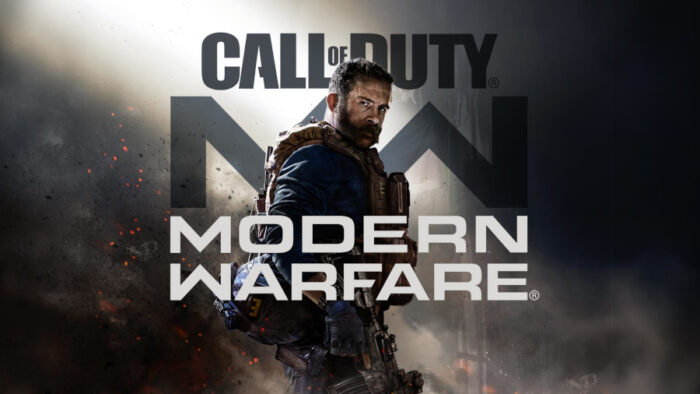หลังเขียนเรื่อง The End of Console Exclusivity ไปไม่นาน ก็มีโอกาสได้อ่านบทความ Games like Final Fantasy 7 Rebirth aren’t sustainable, and the Sony layoffs prove it ในเว็บไซต์ Polygon ที่วิจารณ์โครงสร้างต้นทุนของเกมใหญ่ระดับ AAA ในปัจจุบัน ว่ามันแพงเกินไป แถมตัวเกมก็ยังต้องใส่อะไรที่ “เยอะเกินไป” จนคล้ายกันไปหมดทุกเกมด้วย (โอเพนเวิลด์, ทำเควสต์, มินิเกม ฯลฯ)
บทความนี้ยังได้ชี้เป้าไปยังอีเมลหลุดของ Phil Spencer หัวหน้าทีม Xbox ในช่วงเดือนกันยายน 2023 (ช่วงที่มีคดีควบรวม Activision Blizzard) ซึ่งอีเมลฉบับนี้เล็ดรอดสายตา ไม่ได้อ่านในช่วงเวลานั้น เนื่องจากมีข้อมูลหลุดจำนวนมาก
ในอีเมลฉบับนี้ Spencer ได้วิจารณ์บทบาทของ game publisher (ผู้จัดจำหน่ายเกม) ซึ่งไมโครซอฟท์และโซนี่เป็นหนึ่งในบริษัทเหล่านี้ โดยอธิบายวิวัฒนาการของมันไว้อย่างแจ่มชัดทีเดียว
ในช่วงแรก game publisher มีหน้าที่สร้าง “กำแพง” (moat) เพื่อป้องกันการแข่งขันจากผู้เล่นหน้าใหม่ และเป็นตัวยกระดับกำไร (margin) ให้สูงขึ้น
บทบาทของ game publisher ใกล้เคียงกับบริษัทหนังในฮอลลีวู้ด จำกัดวิธีการจัดจำหน่ายหนังของตัวเองในโรงภาพยนตร์ หรือ บริษัทเพลง จำกัดการเล่นเพลงดังในวิทยุแค่บางสถานีเท่านั้น กรณีของ game publisher คือการจำกัดช่องทางจำหน่าย (ตามร้านเกมและร้านค้าปลีกต่างๆ เช่น แผนกเกมในห้าง) และช่องทางการโปรโมทเกม (เช่น ป้ายโฆษณา บิลบอร์ด หนังสือเกม) หากเป็นสตูดิโอเกมขนาดเล็กที่พัฒนาเกมอย่างเดียว ยังไงก็ต้องพึ่งพาช่องทางเหล่านี้ของเหล่า publisher มิฉะนั้นเกมจะขายไม่ได้เลย
We should start with the question of why game publishers exist in the first place. And like many other forms of media the idea of a game publisher was created from an access “moat”; like movie studios locking up theater distribution, album companies locking up radio play, game publisher’s scale in physical retail game sales allowed them to secure retail shelf space, in-store promotion and margin structure beyond what any individual studio could dictate when games were primary sold in retail stores. If you were a studio, you needed a AAA publisher to reach a customer at an Egghead software.
แต่ในยุคของร้านขายเกมดิจิทัล เกมเมอร์ดาวน์โหลดเกมเอา ไม่ต้องไปซื้อที่หน้าร้านอีกต่อไป กำแพง (moat) อันนี้ก็พังทลายลง เกิดการกระจายอำนาจ (democratization)
สตูดิโอเกมขนาดเล็กสามารถส่งเกมเข้าไปขายบน Steam หรือ Xbox/PlayStation Store ได้โดยตรง และทำตลาดกันเองผ่านช่องทางโซเชียลหรือออนไลน์ได้ โดยไม่ต้องพึ่งพาพลังโปรโมทของค่ายใหญ่ (กรณีของ Minecraft ยุคก่อนโดนซื้อน่าจะเป็นตัวอย่างที่ชัดเจนที่สุด)
ผลคือกำไรของ publisher จึงลดลงมาก
AAA publishers were slow to react to this disruption. The AAA publishers did not find a way to leverage the moat that physical retail created in the digital realm in a way that had them continue their dominance of the game marketplace. They have not found a way to effectively cross promote, they have not found a way to build publisher brands that drive consumer affinity (the way Disney has in video), they did note create a social platform that would allow them reach beyond their aggregate IP MAU. Without a lock on physical distribution the role of the AAA publisher has changed and become less important in today’s gaming industry.
ทางออกของ publisher ในการยกระดับกำไรให้สูงขึ้นในยุคดิจิทัล จึงกลายเป็นการยกระดับโปรดักชันของเกมให้แพงขึ้น อลังการขึ้น เพื่อฉีกหนีจากเกมอินดี้ของค่ายอิสระ ค่ายเกมเล็กๆ
หากอยากเล่นเกมกราฟิกแบบ Minecraft ก็ตามสะดวก แต่ถ้าอยากเล่นเกมกราฟิกอลังการแบบ Call of Duty ก็ต้องเล่นเกมค่ายใหญ่เท่านั้น
Over the past 5-7 years, the AAA publishers have tried to use production scale as their new moat. Very few companies can afford to spend the $200M an Activision or Take 2 spend to put a title like Call of Duty or Red Dead Redemption on the shelf. These AAA publishers have, mostly, used this production scale to keep their top franchises in the top selling games each year.
โมเดลนี้เวิร์คในแง่ยอดขาย แต่ก็เป็นดาบสองคม เพราะต้นทุนค่าผลิตเกมก็แพงขึ้นตามไปด้วย บริษัทเกมยักษ์ใหญ่เหล่านี้จึงมักเน้นทำเกมภาคต่อ เพราะผู้เล่นรู้จัก IP เดิมอยู่แล้ว ไม่ต้องโปรโมทกันใหม่ (นับจากปี 2005 เป็นต้นมา แฟรนไชส์ Call of Duty ออกภาคใหม่ทุกปีแบบไม่มีข้อยกเว้นใดๆ และยังต้องระดมสตูดิโอทั้งหมดในเครือ Activision มาช่วยกันทำ) แตกต่างจากการลองทำ IP ใหม่ๆ ที่มีโอกาสเจ๊งสูง ช่วงหลังเราจึงเห็นค่ายใหญ่ๆ ออกเกม IP ใหม่ๆ กันน้อยมาก (Overwatch น่าจะเป็นเกม IP ใหม่ที่ประสบความสำเร็จเป็นเกมท้ายๆ ของบรรดาค่ายใหญ่)
ในอีกทาง เราเห็นการซื้อไลเซนส์คาแรกเตอร์แบรนด์ดังๆ จากวงการหนังมาทำเป็นเกม เช่น EA ซื้อไลเซนส์ Star Wars, Ubisoft ซื้อไลเซนส์ Avatar หรือ Sony ทำ Spider-Man, หลายค่ายซื้อ Marvel แต่ภาพรวมเราแทบไม่เห็นเกม IP ใหม่ๆ เลย เพราะเกมภาคต่อกับ IP หนังเก็บกินไปหมด
The issue these publishers have run into is these same production scale/cost approach hurts their ability to create new IP. The hurdle rate on new IP at these high production levels have led to risk aversion by big publishers on new IP. You’ve seen a rise of AAA publishers using rented IP to try to offset the risk (Star Wars with EA, Spiderman with Sony, Avatar with Ubisoft etc). This same dynamic has obviously played out in Hollywood as well with Netflix creating more new IP than any of the movie studios.
Spencer จึงสรุปว่า ยุคของของ game publisher ยักษ์ใหญ่นั้นจบลงแล้ว ตอนนี้บริษัทเหล่านี้เน้นรายได้และกำไร (P&L) จากเกมมากกว่า เป็นผลให้เราเห็นเกม IP ใหม่ๆ ที่ถูกสร้างสรรค์ขึ้นมาจากค่ายเกมขนาดรองแทน เช่น Minecraft, Fortnite, Roblox, Dota 2
Specifically, the AAA game publishers, starting from a position of strength driven from physical retail have failed to create any real platform effect for themselves. They effectively continue to build their scale through aggregated per game P&Ls hoping to maximize each new release of their existing IP.
In the new world where a AAA publisher don’t have real distribution leverage with consumers, they don’t have production efficiencies and their new IP hit rate is not disproportionately higher than the industry average we see that the top franchises today were mostly not created by AAA game publishers. Games like Fortnite, Roblox, Minecraft, Candy Crush, Clash Royale, DOTA2 etc. where all created by independent studios with full access to distribution.

